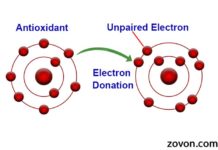
Novartis had developed a drug in 2014 for addressing the anti-aging effect of a pill containing Rapamycin. It was given in small doses to people over the age of 65 in order to increase their response to flu vaccines. It was found that it did increase the response by 20%. the only question that remained unanswered was whether it could reverse the process of aging or not. Well, scientists had some interesting findings.[1]
This study done by Novartis on rapamycin was referred to as the first human aging trial which explored the possibility of whether the immune system of the older people could be made to act like that of a younger person.
Another company PureTech health reported pursuing two other drug molecules from Novartis for discovering their effect on reversing the aging process. They are planning to test whether drugs can be used to infuse new life in aged immune cells.
The drug tested by Novartis is a derived from rapamycin which is a compound that was discovered oozing out of a bacterium that is believed to be from Easter island or Rapa Nui and has been named after it. Due to its action on the immune system, this drug has been made a part of the transplant medicine group as an immunosuppressant. A version of this drug is sold by Novartis as an anti-cancer medicine.
The most interesting thing about rapamycin is the fact that it has shown evidence of postponing death, at least in laboratory setting. It has shown to lengthen the life span of worms, flies and worms. When fed to rodents, their life span was increased by 25% on an average. However, it should be noted that this drug did not make any organism immortal but has interesting outcomes.[2]
The National Institute on Aging has also been putting up efforts in order to test drugs that promise longevity and test them independently on mice. Scientists at this institute are especially excited about rapamycin as it works in any age. Further study is being undertaken in Seattle to discover whether rapamycin can extend the lives of pet dogs as well.
The only data that is missing is whether rapamycin can increase the life span of humans as well or not. There are many reasons that pharma companies have not pursued potential anti-aging treatments. Scientifically speaking, the idea of longevity pills is quite outdated and is considered the niche of cranks and quarks. Clinically, it is difficult to prove whether a pill will increase the life of a person or not as it will take a lot of time. As far as the regulatory bodies are considered, they have not yet laid down any guidelines because aging as such is not considered a disease that needs treatment.
However, recently, venture capitalists have started investing in these programs as there is a lot of opportunities to make economic gains. Scientist from Novartis tested the efficacy of drug everolimus in increasing the response to flu vaccine in elderly people of New Zealand and Australia and New Zealand. It was found that the immune system responded more vigorously, similar to that seen in younger people.
Brian Kennedy, Buck Institute, stated that the research done by Novartis is groundbreaking as it has discovered a way through which a pill can increase the life span of organisms at a time when no one has the stomach to do longevity studies.
However, the company states that the research is not their priority and they are not developing this drug for treating aging related disorders. The exact direction in which the research should go is not yet decided. They are prioritizing the indications where the data can help them in getting an approval. Right now, they are planning to use this drug for reversing age related detrimental changes to the immune system or“immunosenescence”. This might include restoring some types of T cells that become exhausted and lose their ability to protect the body against infections and cancer. These T cells secrete pro-inflammatory cytokines that has other implication on the health of a person.
Rapamycin is thought to act on mTOR complex, which is a set of genes known to play a major role in regulating cell metabolism. When mTOR becomes blocked, it pushes cells to get into a life-extending survival mode. There are several other tricks like feeding the animals a diet that has very low-calorie, known as the calorie restriction method.
Scientists believe that like other biological theories, this theory of increasing life span of individuals using a pill will work in humans as well, after being successful in animals.










